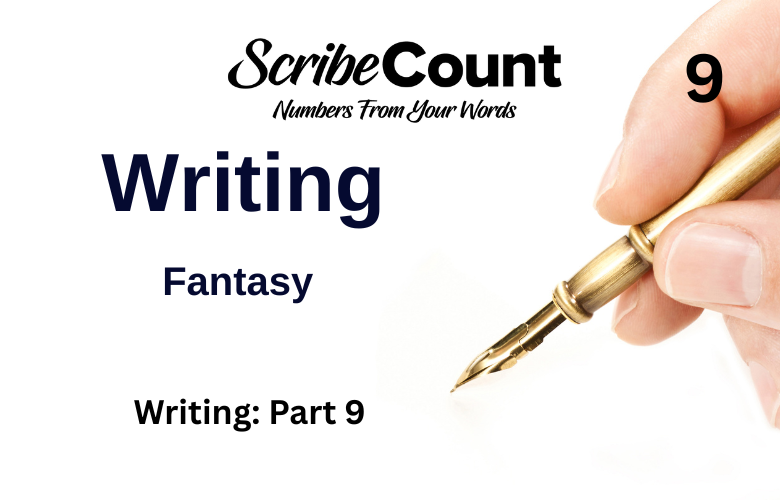Fantasy for Indie Authors: How to Create a Magical World That Keeps Readers Hooked
Fantasy novels take readers on journeys through magical worlds, mythical creatures, and epic adventures. It’s a genre that offers limitless possibilities, whether you're crafting a high fantasy world with complex political intrigue or a more personal, intimate story set against a backdrop of magic and myth. As a fantasy author, you have the freedom to build entire universes, create new rules, and transport your readers to places beyond their wildest imaginations.
The key to writing a successful fantasy novel lies in world-building, character development, and creating an engaging plot that draws readers into the story. Readers come to fantasy novels for escapism, but they also want to connect with characters who feel real, even in the most fantastical settings. The best fantasy novels mix rich, imaginative worlds with deeply human emotions, struggles, and growth.
As an indie author, writing fantasy allows you to push creative boundaries and explore limitless themes, from good versus evil to complex moral dilemmas. This guide will help you craft a fantasy world that feels alive, a plot that keeps readers turning the pages, and characters that resonate with depth and authenticity.
What Makes a Fantasy Novel?
At its core, a fantasy novel is defined by the presence of magical elements that are not present in the real world. Whether it's an ancient magical system, mythical creatures, or a world where the laws of physics don’t apply, fantasy allows you to create a world where anything is possible. The genre is marked by its imaginative and often otherworldly nature, and it’s a genre that allows for rich exploration of human nature and societal structures in a way that no other genre can.
Fantasy novels often contain a strong world-building element, where the setting itself becomes a character. The world should be filled with magic, supernatural beings, and sometimes, distinct societal rules that govern how everything functions. In this way, fantasy is a genre that immerses the reader in a completely different reality, a reality where anything from dragons and wizards to otherworldly realms and lost civilizations are not only possible, but common.
The protagonist of a fantasy novel is typically someone who finds themselves in extraordinary circumstances, often with a quest or mission that is larger than life. These characters frequently have a unique power or ability, such as magic or the strength to face overwhelming odds, or they may be ordinary people thrust into extraordinary events. The plot often revolves around their journey to fulfill a prophecy, defeat a dark force, or solve a deep mystery, with moments of both epic battles and personal growth.
Fantasy novels often explore themes of good vs. evil, identity, and moral dilemmas, and these themes are presented through the interactions of fantastical characters, magical systems, and the protagonist’s development. At the heart of most fantasy novels is a battle—whether physical or philosophical—between opposing forces, such as light and dark, freedom and oppression, or truth and deception.
A few key aspects that define fantasy novels include:
- A Magical World: The setting of the story often plays a critical role, whether it’s an entirely new, magical land or a version of our own world infused with magical elements. The environment should be richly detailed and immersive.
- Supernatural Elements: Magic, mythical creatures, and fantastical abilities are staples of the genre. Whether the magic is systemized and logical, like in Harry Potter (available on Amazon), or more mysterious and chaotic, like in The Lord of the Rings (available on Apple Books), fantasy thrives on its imaginative elements.
- A Hero’s Journey or Quest: Most fantasy stories revolve around the protagonist going on a journey, whether literal or metaphorical. This could involve a battle against a dark force, uncovering a secret, or the growth of the protagonist from an ordinary person to an extraordinary hero.
The Popularity of Fantasy Fiction
Fantasy novels have been a beloved genre for centuries, and their popularity has only grown in recent years. With the success of books like The Name of the Wind by Patrick Rothfuss (available on Amazon) and A Game of Thrones by George R.R. Martin (available on Apple Books), fantasy has become one of the most lucrative genres in the literary world. The genre has found a large following in both print and digital formats, and it continues to thrive with a loyal fanbase eager for new, imaginative worlds.
The genre’s appeal also extends to film and television, with adaptations like The Hobbit, The Chronicles of Narnia, and Harry Potter becoming massive blockbusters. These adaptations not only highlight the enduring popularity of fantasy stories but also introduce the genre to new generations of readers and viewers. The genre’s ability to mix adventure, imagination, and deep emotional stakes allows it to remain universally appealing.
For indie authors, fantasy offers a vast world of possibilities. You have the ability to create your own universe, invent magical systems, and build complex worlds and characters. Whether you want to write high fantasy, urban fantasy, or magical realism, the genre provides a platform for storytelling that transcends the boundaries of reality.
Reader Expectations for Fantasy Fiction
When readers pick up a fantasy novel, they expect an immersive experience that transports them to a world unlike their own. They are looking for rich, detailed settings where magic exists and the impossible is possible. At the same time, they want to connect with characters who are compelling and complex, people they can root for as they face challenges both physical and emotional.
One of the most important aspects of fantasy is world-building. Readers come to fantasy novels expecting to be introduced to a fully realized world, one with its own history, rules, and systems. Whether it’s the intricacies of a magical system, the cultures and politics of a fictional society, or the geography of a fantastical land, fantasy readers expect to be transported to a different reality. The more immersive the world, the stronger the connection readers will feel to the story.
In addition to a strong setting, readers expect to encounter characters who grow and evolve throughout the story. Fantasy protagonists often undergo significant personal development, whether that’s learning to master their magical powers, confronting their inner demons, or coming to terms with their destiny. Readers expect a hero’s journey—a personal transformation that reflects universal themes of growth, sacrifice, and redemption.
Moreover, readers expect a balance between action and emotion. While epic battles and thrilling adventures are key components of the genre, readers also want to see characters wrestle with personal dilemmas, relationships, and the consequences of their actions. Fantasy novels are often at their best when they combine the excitement of action with the emotional depth of character development.
Common Tropes in Fantasy Novels
Fantasy is rich with recurring themes and tropes that have stood the test of time. These tropes serve as both familiar markers of the genre and the building blocks for new and original stories. Some of the most common fantasy tropes include:
- The Chosen One: The protagonist often has a special destiny or hidden power that sets them apart from others. This trope is central in books like The Harry Potter Series by J.K. Rowling (available on Amazon) or The Wheel of Time by Robert Jordan (available on Apple Books).
- The Mentor: A wise figure often helps guide the hero, offering advice, training, or magical knowledge. Think of Gandalf in The Lord of the Rings (available on Amazon) or Obi-Wan Kenobi in Star Wars (available on Apple Books).
- The Dark Lord: A villain who threatens the world, usually through dark magic or power. This villain serves as the central antagonist that the hero must defeat. A prime example is Sauron in The Lord of the Rings (available on Amazon) or Voldemort in Harry Potter (available on Apple Books).
- The Quest: Many fantasy novels center on a hero’s journey or quest to accomplish a specific goal, such as retrieving an artifact, defeating a villain, or saving the world. The Hobbit by J.R.R. Tolkien (available on Amazon) is a classic example.
- The Magical Item: Items with special powers, such as swords, rings, or amulets, are common in fantasy fiction. These items often hold the key to defeating the antagonist or saving the world, as seen with the One Ring in The Lord of the Rings (available on Amazon).
Structuring Your Fantasy Novel: The Plot Map
Here’s a simple plot map you can follow when planning your fantasy novel, ensuring that the pacing is engaging and the story unfolds in a logical, exciting manner:
- Normal World: Introduce your protagonist in a familiar setting, though one that hints at something larger or more magical beneath the surface. This could be a peaceful village, a magical school, or a fantastical city.
- Inciting Incident: Something happens that shakes the protagonist’s world, often forcing them to leave their familiar life and embark on a journey. This could be an attack, the discovery of a magical power, or the revelation of a hidden prophecy.
- Rising Action: The protagonist faces various challenges and grows along the way. These challenges may include learning magic, making allies, facing enemies, and discovering deeper secrets about their world.
- Climax: The protagonist faces their greatest challenge, often in a final confrontation with the antagonist or a powerful force. This is where the stakes are highest, and the outcome is uncertain.
- Resolution: The story concludes with the protagonist having fulfilled their destiny or achieved their goal. The resolution can either tie up loose ends or leave room for future adventures.
Final Thoughts for Indie Fantasy Writers
Writing a fantasy novel is an exciting journey of imagination and creativity. It’s a genre that offers limitless possibilities, allowing you to create worlds, magic systems, and characters that captivate readers. Whether you’re writing epic high fantasy, urban fantasy, or something entirely new, the genre provides the opportunity to explore complex themes of good vs. evil, power, and identity, all while providing an immersive experience that readers won’t forget.
As an indie author, fantasy offers endless opportunities for world-building, creativity, and storytelling. Use this genre to bring your wildest ideas to life, and don’t be afraid to experiment with new twists on classic tropes. With the right balance of world-building, character development, and plot, your fantasy novel will capture the imagination of readers and transport them to a world they can’t wait to visit again.

